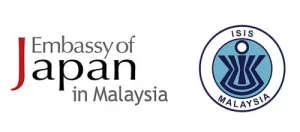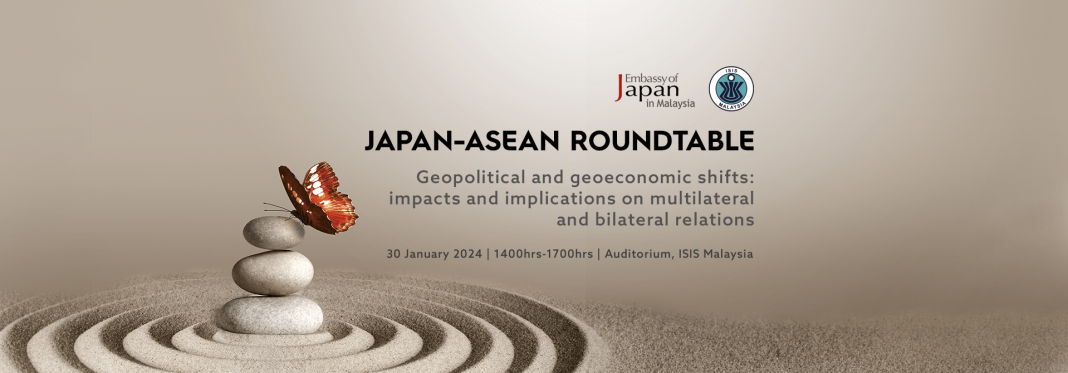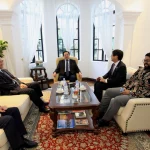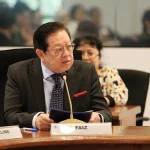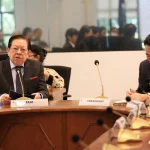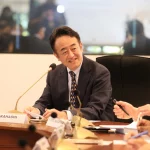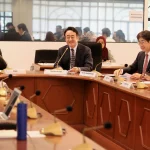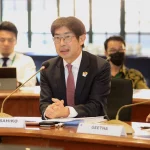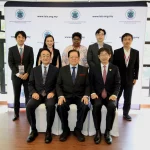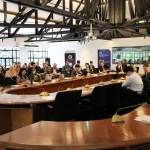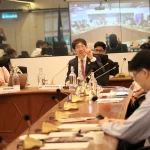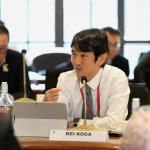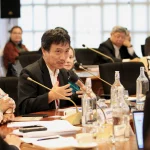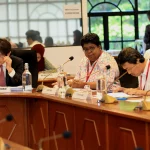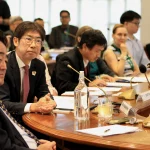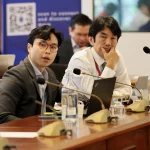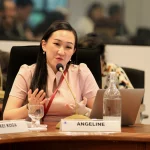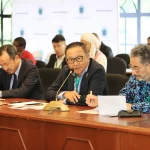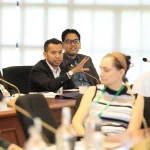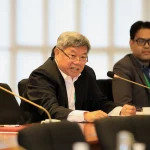The roundtable is held to mark the 50th anniversary of Japan-Asean relations and the Commemorative Summit held in Tokyo, last month. The half-day event, themed ‘Geopolitical and geoeconomic shifts: impacts and implications on multilateral and bilateral relations’ comprises of two components – a keynote address and a session discussing the main theme, focusing on the influence of geopolitical and geoeconomic shifts in Japan-Asean relations.
Media
Remarks
Welcoming remarks

HE Takahashi Katsuhiko
Opening address

Prof Dr Mohd Faiz Abdullah
Keynote address

HE Kiya Masahiko
The year 2023 marked the 50th anniversary of Japan-Asean diplomatic relations, with the Fukuda Doctrine being the foundation of the ties. Over the decades, Japanese assistance had brought development and prosperity, contributing to the peace dividend throughout Southeast Asia. Nevertheless, both Japan and Southeast Asia are now facing challenges, testing the resilient ties. The shifting security landscape and new geoeconomic realities have influenced policy directions, raising questions about the long-term relations.
- Cooperation and a commitment to free, open, rules-based regional order underpin Japan-Asean relations. However geopolitical shifts and risks, including major-power rivalry, Ukraine-Russia war and tensions in the South China Sea are perceived differently by Japan and Asean member states. These are shaped by diverging security concerns and domestic interests. What are these divergences and how will they affect the Japan-Asean relationship in the long run? How can both sides work to bridge these gaps and enhance political-security collaboration?
- As a growing and significant economic bloc, Asean has focused on economic cooperation to mitigate geopolitical tensions. However, trends like de-dollarisation and de-risking are forcing Asean to navigate its economic strategies. How does Japan view economic trends in Asean? What role can Japan play to both support and align with the bloc’s economic competitiveness?
- Japan and Asean marked the 50th anniversary with an upgrade of bilateral ties to Comprehensive Strategic Partnership and a Commemorative Summit. What are the highlights? What is the progress of the AOIP four-point cooperation? Are they enough to address geopolitical and geoeconomic challenges while strengthening relations?
Discussant I

Assoc Prof Dr Kei Koga
Discussant II

Dr Geetha Govindasamy
Discussant III

Calvin Cheng
Partnership
